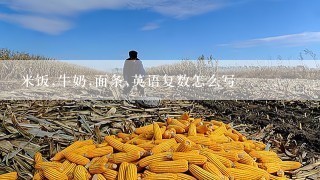蔬菜英语怎么写?蔬菜的英语单词怎么写

1、蔬菜英语怎么写?
蔬菜的英文翻译是vegetable,句中作为名词和形容词使用,还可以表示为植物人。vegetable英 [ˈvedʒtəbl] 美 [ˈvɛdʒtəbəl, ˈvɛdʒɪtə-] n.蔬菜;植物人adj.蔬菜的;植物的相关短语:
1、vegetable salad 蔬菜沙拉 ; 素沙拉 ; 蔬菜色拉 ; 什菜沙拉
2、Mixed Vegetable 炒杂菜 ; 什锦蔬菜 ; 混合蔬菜 ; 混合菜
3、Vegetable Prawns 时菜虾
4、Vegetable Roll 炒素丁 ; 菜卷子
5、Bamboo Vegetable 什笙上素vegetable的同义词有greens和greenstuff。一、greens英 [ɡ'ri:nz] 美 [ɡ'ri:nz] n.绿叶蔬菜;绿色蔬菜( green的名词复数 );绿色的衣服;植物例句:
1、The greens are full of fibres that you can't chew. 这菜筋多嚼不烂。
2、The Greens were the catalysts of a necessary changein the European. consciousness. 绿党促使欧洲人的观念发生了必要的改变。二、greenstuff英 ['gri:nstʌf] 美 ['grɪnˌstʌf] n.蔬菜例句:
1、Objective: To study a method of determining nitrite in greenstuff. 目的:研究测定蔬菜中亚硝酸盐的新方法。
2、The micro-ecological significance of the traditional greenstuff pickling process .蔬菜传统腌制发酵工艺过程中微生物生态学的意义。

2、蔬菜的英语单词怎么写
你好!蔬菜vegetables 英['vedʒɪtəblz] 美['vedʒɪtəblz]n. 蔬菜( vegetable的名词复数 ); 生活单调的人,植物人; 菜蔬;[例句]Fresh fruit and vegetables provide fibre and vitamins.新鲜水果和蔬菜提供植物纤维素和维生素。

3、蔬菜的英文怎么写?
译文:vegetable英 ['vedʒtəbl]释义:n 蔬菜;植物;植物人adj 蔬菜的;植物的[ 复数 vegetables ]短语:vegetable salad 蔬菜沙拉 ; 素沙拉 ; 蔬菜色拉 ; 什菜沙拉扩展资料:重点词汇用法:vegetablen (名词)
1、vegetable的基本意思是“蔬菜”,用于比喻可指因伤、病或异常情况而丧失思维能力但仍有生命的“植物人”; 还可指“生活单调的人”。
2、vegetable在句中还可置于其他名词前作定语。词源解说:15世纪初期进入英语,直接源自古法语的vegetable,意为生命;最初源自中世纪拉丁语的vegetabilis,意为生长、茂盛。

4、肉和蔬菜的复数英语怎么用
meats
n. 肉( meat的名词复数 ); 主要[重要]的部分;
[例句]Use separate chopping boards for raw meats, cooked meats, vegetables and salads
切生肉、熟肉、蔬菜和拌色拉的青菜时要使用不同的切菜板。
[其他] 原型: meat
vegetables 英['vedʒɪtəblz] 美['vedʒɪtəblz]
n. 蔬菜( vegetable的名词复数 ); 生活单调的人,植物人; 菜蔬;
[例句]Fresh fruit and vegetables provide fibre and vitamins.
新鲜水果和蔬菜提供植物纤维素和维生素。
[其他] 原型: vegetable。

5、米饭,牛奶,面条,英语复数怎么写
米饭 fish鱼 noodle(s)面条复数 beef牛肉 vegetable蔬菜 soup汤 have吃 dinner晚餐正餐 wait等 I'd like=I would like bread面包 milk牛奶 egg蛋 water水 hungry饥饿的。

6、英语单词变复数
eggs
apples
tea
breads
bananas
pizza
oranges
pears
water
milk
pops
sugar
fish
legs
melon
eyes
heads
knees
toes
ears
arms
feet
hair
shirts
icecream
meat
chicken
noodles
rice
dumplings
hamburgers
skirts
sandwiches
dresses
hats
coats
shoes
socks
hands
以上只是通常的复数形式,但在特殊情况下有问题的哦,要看情况的,比如fish表示一种鱼是不可数,但表示多种鱼(不是只一种鱼的数量,而是鱼的种类,可以是fishes),还有比如chicken,表示鸡肉是不可数,但表示鸡的时候是可数的,chicken他本身就是复数,单数是chick.类似的还有很多的,没法都写对的,要看具体用在什么情况下的,下面给你复制一部分内容吧,我没空写
1、1 构成方法及读音规则
1) 一般情况加 –s:map-maps boy-boys girl-girls pen-pens bag-bags car-cars
清辅音后读/s/ 浊辅音和元音后读 /z/
2) 以s, sh, ch, x等结尾加 –es, 读 /iz/
bus-buses watch-watches box-boxes brush-brushes
3) 以辅音字母+y结尾,变y 为i再加es, 读 /z/
baby---babies city-cities country-countries
但以y结尾的专有名词,或元音字母+y 结尾的名词变复数时,直接加s变复数。例如:
two Marys the Henrys monkey---monkeys holiday---holidays
4) 以o结尾的名词,变复数时:
a. 加s,如: photo---photos piano---pianos
radio---radios zoo---zoos;
b. 加es,如:potato--potatoes tomato--tomatoes
c. 上述a和b两种方法均可,如zero---zeros / zeroes。
5) 以f或fe 结尾的名词变复数时:
a. 加s,如: belief---beliefs roof---roofs
safe---safes gulf---gulfs;
b. 去f,fe 加ves,如:half---halves
knife---knives leaf---leaves wolf---wolves
wife---wives life---lives thief---thieves;
c. 上述a和b两种方法均可,如handkerchief: handkerchiefs / handkerchieves。
1、2 名词复数的不规则变化
1) child---children foot---feet tooth---teeth
mouse---mice man---men woman---women
注意:由一个词加 man 或 woman构成的合成词,其复数形式也是 -men 和-women,如an Englishman,two Englishmen。但German不是合成词,故复数形式为Germans;Bowman是姓,其复数是the Bowmans。
2) 单复同形,如deer,sheep,fish,Chinese,Japanese ,li,jin,yuan,two li,three mu,four jin等。但除人民币的元、角、分外,美元、英镑、法郎等都有复数形式。如:a dollar, two dollars; a meter, two meters。
3)集体名词,以单数形式出现,但实为复数。例如:
people police cattle 等本身就是复数,不能说 a people,a police,a cattle,但可以说a person,a policeman,a head of cattle.
4) 以s结尾,仍为单数的名词,如:
a. maths,politics,physics等学科名词,一般是不可数名词,为单数。
b. news 为不可数名词。
c. the United States,the United Nations 应视为单数。
The United Nations was organized in 194
5、 联合国是1945年组建起来的。
d. 以复数形式出现的书名,剧名,报纸,杂志名,也可视为单数。例如:
"The Arabian Nights" is a very interesting story-book. 《一千零一夜》是一本非常有趣的故事书。
5) 表示由两部分构成的东西,如:glasses (眼镜) trousers, clothes等,若表达具体数目,要借助数量词 pair(对,双); suit(套); a pair of glasses; two pairs of trousers等。
6) 另外还有一些名词,其复数形式有时可表示特别意思,如:goods货物,waters水域,fishes(各种)鱼。
1、3 不可数名词量的表示
1)物质名词
a. 当物质名词转化为个体名词时为可数。
比较:Cake is a kind of food. 蛋糕是一种食物。 (不可数)
These cakes are sweet. 这些蛋糕很好吃。 (可数)
b. 当物质名词表示该物质的种类时,可数。例如:
This factory produces steel. (不可数)
We need various steels. (可数)
c. 当物质名词表示份数时,可数。例如:
Our country is famous for tea. 我国因茶叶而闻名。
Two teas, please. 请来两杯茶。
2) 抽象名词表示具体的事例时也可数。例如:
four freedoms 四大自由 the four modernizations四个现代化
物质名词和抽象名词可以借助单位词表一定的数量,如a glass of water a piece of advice
a pile of caol a flash of lightening a burst of laughter
1、4 定语名词的复数
名词作定语一般用单数,但也有以下例外。
1) 用复数作定语。例如:
sports meeting 运动会 students reading-room 学生阅览室
talks table 谈判桌 the foreign languages department 外语系
2) man, woman, gentleman等作定语时,其单复数以所修饰的名词的单复数而定。例如:
men workers women teachers gentlemen officials
3)有些原有s结尾的名词,作定语时,s保留。例如:
goods train (货车) arms produce 武器生产
customs papers 海关文件 clothes brush 衣刷
4) 数词+名词作定语时,这个名词一般保留单数形式。例如:
two-dozen eggs 两打鸡蛋 a ten-mile walk 十英里路
two-hundred trees 两百棵树 a five-year plan. 一个五年计划
1、5 不同国籍人的单复数
国籍 中国人 瑞士人 澳大利亚人 俄国人
总称(谓语用复数) the Chinese the Swiss the Australians the Russians
单数 a Chinese a Swiss an Australian a Russian
复数 two Chinese two Swiss two Australians two Russians
意大利人 希腊人 法国人 日本人 美国人
the Italians the Greek the French the Japanese the Americans
an Italian a Greek a Frenchman a Japanese an American
two Italians two Greeks two Frenchmen two Japanese two Americans
印度人 加拿大人 德国人 英国人 瑞典人
the Indians the Canadians the Germans the English the Swedish
an Indian a Canadian a Germans an Englishman a Swede
two Indians two Canadians two Germans two Englishmen two Swedes
名称 总称(谓语用复数) 一个人 两个人
中国人 the Chinese a Chinese two Chinese
瑞士人 the Swiss a Swiss two Swiss
澳大利亚人the an two
Australians Australian Australians
俄国人 the Russians a Russian two Russians
意大利人 the Italians an Italian two Italians
希腊人 the Greek a Greek two Greeks
法国人 the French a Frenchman two
Frenchmen
日本人 the Japanese a Japanese two Japanese
美国人 the Americans an American two Americans
印度人 the Indians an Indian two Indians
加拿大人 the Canadians a Canadian two Canadians
德国人 the Germans a German two Germans
英国人 the English an Englishman two
Englishmen
瑞典人 the Swedish a Swede two Swedes。





































































